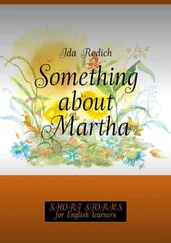Eliza Leslie - Stories for Helen
Здесь есть возможность читать онлайн «Eliza Leslie - Stories for Helen» — ознакомительный отрывок электронной книги совершенно бесплатно, а после прочтения отрывка купить полную версию. В некоторых случаях можно слушать аудио, скачать через торрент в формате fb2 и присутствует краткое содержание. Жанр: foreign_prose, на английском языке. Описание произведения, (предисловие) а так же отзывы посетителей доступны на портале библиотеки ЛибКат.
- Название:Stories for Helen
- Автор:
- Жанр:
- Год:неизвестен
- ISBN:нет данных
- Рейтинг книги:4 / 5. Голосов: 1
-
Избранное:Добавить в избранное
- Отзывы:
-
Ваша оценка:
- 80
- 1
- 2
- 3
- 4
- 5
Stories for Helen: краткое содержание, описание и аннотация
Предлагаем к чтению аннотацию, описание, краткое содержание или предисловие (зависит от того, что написал сам автор книги «Stories for Helen»). Если вы не нашли необходимую информацию о книге — напишите в комментариях, мы постараемся отыскать её.
Stories for Helen — читать онлайн ознакомительный отрывок
Ниже представлен текст книги, разбитый по страницам. Система сохранения места последней прочитанной страницы, позволяет с удобством читать онлайн бесплатно книгу «Stories for Helen», без необходимости каждый раз заново искать на чём Вы остановились. Поставьте закладку, и сможете в любой момент перейти на страницу, на которой закончили чтение.
Интервал:
Закладка:
The scene that ensued in the Evering family, on the day following the ball, can better be imagined than described. Mr. Granby had at once informed Mr. Evering of the source from whence he had derived his information with respect to the posture of his affairs; and when Rosamond found this new and terrible proof of the fatal effects of her predominant vice, she went into an hysteric fit, and was so ill all night, that her parents, in addition to their other troubles, had to fear for the life of their daughter. The sufferings of her mind brought on a fever; and it was more than a week before she was able to leave her bed.
Her father and mother kindly forgave her, and avoided all reference to her fault. But she could not forgive herself, and on the day that they left their handsome residence in one of the principal streets, and removed to a small mean-looking house in the suburbs, her agony was more than words can express. All their furniture was sold at auction, even Rosamond's piano, and her mother's work-table. Their most expensive articles of clothing were put away, as in their present circumstances it would be improper to wear them. The house they now inhabited, contained only one little parlour with a kitchen back of it, and three small rooms upstairs. Their furniture was limited to what was barely useful, and of the cheapest kind. Their table was as plain as possible; and their only servant a very young half-grown girl.
This sad change in their way of living, added to the stings of self-reproach, almost broke Rosamond's heart; and her pride was much shocked when she found that her father had applied for the situation of clerk in a counting-house, as a means of supporting his family till something better should offer.
At length Mrs. Marbury returned; having hurried back to Philadelphia as soon as the intelligence of her nephew's failure had reached her. How did she blame herself for having taken such serious offence at what now appeared to her almost too trifling to remember. All her former regard for the Evering family returned. She sought them immediately in their humble retreat, and offered Mr. Evering her assistance to the utmost farthing she could command.
To conclude, Mr. Evering's affairs were again put in train. He resumed his business; and a few years restored him to his former situation.
This sad, but salutary lesson produced a lasting effect on Rosamond; and from that time, she kept so strict a watch over her ruling passion, that she succeeded in entirely eradicating it. She grew up a discreet and amiable girl; and no one who knew her in after years, could have believed that till the age of fourteen she had been an incorrigible tell-tale.
THE BOARDING-SCHOOL FEAST
"They hear a voice in every wind,
And snatch a fearful joy."
IT is a very common subject of complaint with boarding-school children (and there is often sufficient foundation for it) that they are too much restricted in their food, and that their diet is not only inferior in quality to what it ought to be, but frequently deficient in quantity also. There was certainly, however, no cause for any dissatisfaction of this sort at Mrs. Middleton's boarding-school, in Philadelphia. The table was in every respect excellent; and a basket of bread or biscuit, and sometimes of gingerbread, was handed round to all the pupils, every morning at eleven o'clock. Mrs. Middleton's young ladies were strangers to the common boarding-school practice of coaxing or bribing the servants to procure them cakes and tarts from the confectioners; for the table was sufficiently supplied with those articles, made in such a manner as to be agreeable to the taste without endangering the health; and they were every day allowed some sort of fruit, of the best quality the market could furnish.
At last, a young lady named Henrietta Harwood became a member of Mrs. Middleton's seminary. Miss Harwood had been for several years a pupil of one of those too numerous establishments, where the comfort of the children is sacrificed to the vanity of a governess, who rests her claims to encouragement principally on the merits of elegantly furnished parlours, an expensive style of dress, frequent evening parties, and occasional balls. In schools where outward show is the leading principle, the internal economy is generally conducted on the most parsimonious plan, and while the masters (who attend only at certain hours) are such as are considered the most fashionable, the female teachers that live in the house, are too often vulgar girls obtained at a low salary, and who frequently are in league with the elder pupils in ridiculing and plotting against the governess.
Most of the faults and follies that were likely to be acquired at a show-boarding-school, Henrietta Harwood brought with her to the excellent and well-conducted establishment of Mrs. Middleton: but she had some redeeming qualities that made her rather a favourite with her new companions, and disposed her governess to hope that all would come right at last.
One evening, the elder young ladies were sitting very comfortably at their different occupations, round the table in the front school-room. The window-shutters were closed, a good fire was burning in the stove, and Mrs. Middleton had just sent them a basket of apples, according to her custom in the winter evenings. After finishing a very fine one, Henrietta Harwood exclaimed – "Well – I wonder at myself for eating these apples!"
Miss Brownlow. Why, I am sure they are the very best Newtown pippins.
Henrietta. That is true, Brownie: but at Madame Disette's we had something better of evenings than mere apples.
Miss Brownlow. What had you?
Henrietta. We had sometimes cheesecakes, and sometimes tarts; with very frequently pound-cake and jumbles; and sometimes we had even little mince-pies, and oyster-patties.
Miss Wilcox. O, delicious! What an excellent governess! How could you ever consent to leave her? I thought Mrs. Middleton allowed us a great many good things; but she does not send us cheesecakes and tarts of an evening.
Henrietta. O, do not mistake! We might have gone without them all our lives, before Madame Disette would have sent us any thing of the sort. She did not even allow us apples of an evening, or a piece of bread between breakfast and dinner. Why, one summer evening, she bought at the door some common ice-cream, of a black man that was carrying it through the streets in a tin pot; and when we thought that, for once , she had certainly treated us, she charged the ice-cream in our quarter-bills. No, no, – we got nothing from her , but stale bread; bad butter; sloppy tea; coffee without taste or colour; skinny meat, half-cooked one day, cold the next, and hashed or rather coddled the third. Then, for a dessert, we were regaled with sour knotty apples in the winter, worm-eaten cherries in the summer, and dry squashy pears in the autumn; and once a week we had boiled rice, or baked bread and milk, by way of pudding. Though after the scholars had eaten their allowance, and made their curtsies and gone up to the school-room, she always had something nice brought for herself, and her sister, and niece: and of which poor Benson, the under teacher, was never invited to partake.
Miss Wilcox. But how did you get such nice things in the evening?
Henrietta. We bought them, to be sure: bought them with our own money. That was the only way. When the little girls had all gone to bed, and Madame Disette, and Madame Trompeur, and Mademoiselle Mensonge were engaged in the parlour with their company, we all (that is, the first class) subscribed something; and we commissioned the chambermaid to bring us whatever we wanted from the confectioner's. O, what delightful feasts we had!
Читать дальшеИнтервал:
Закладка:
Похожие книги на «Stories for Helen»
Представляем Вашему вниманию похожие книги на «Stories for Helen» списком для выбора. Мы отобрали схожую по названию и смыслу литературу в надежде предоставить читателям больше вариантов отыскать новые, интересные, ещё непрочитанные произведения.
Обсуждение, отзывы о книге «Stories for Helen» и просто собственные мнения читателей. Оставьте ваши комментарии, напишите, что Вы думаете о произведении, его смысле или главных героях. Укажите что конкретно понравилось, а что нет, и почему Вы так считаете.












